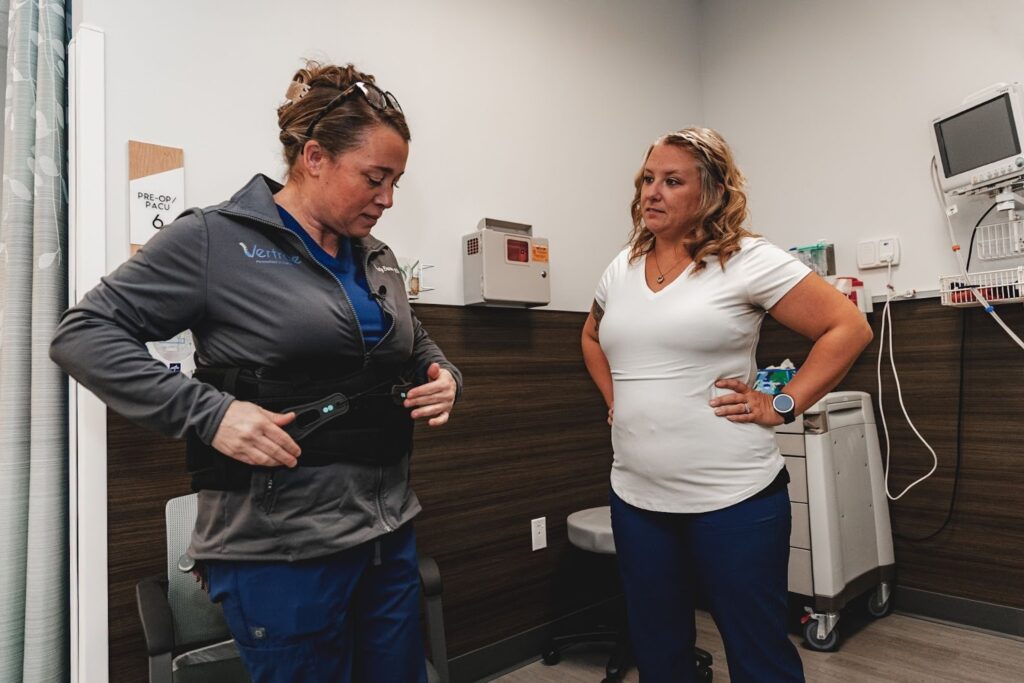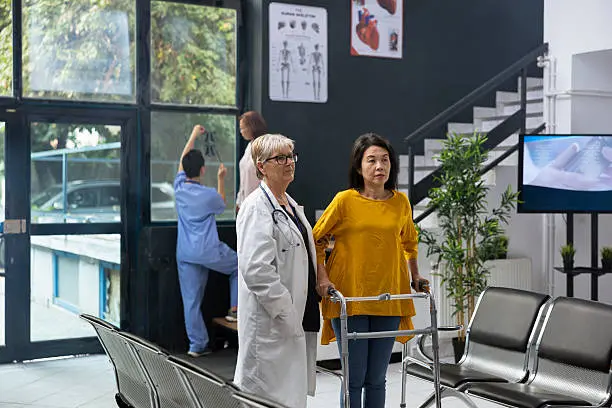Back pain can feel like a constant roadblock—one that affects your sleep, work, and even the simplest of daily routines. Whether you’re experiencing stiffness after a long day, chronic discomfort from an old injury, or sharp nerve pain radiating down your leg, one thing is clear: your back deserves professional attention.
Finding the right back doctor can make all the difference between temporary relief and lasting recovery. The right specialist doesn’t just treat pain—they help you reclaim mobility, confidence, and control over your life.
Here are seven essential tips to help you find the right back doctor, understand your treatment options, and protect your spine for years to come.
1. Look for Specialized Training and Board Certification
Not every physician who treats back pain is a spine specialist. While general practitioners can address mild discomfort, complex or recurring back issues require advanced expertise. The ideal back doctor should have specialized training in neurosurgery or orthopedic spine surgery—fields dedicated to understanding the spine’s intricate structure and function.
For example, board-certified neurosurgeons are highly trained to diagnose and treat spinal disorders that affect the nerves, vertebrae, and discs. They often complete rigorous residencies and fellowships focused exclusively on the spine.
At Vertrae®, Dr. Kamal Woods, MD, MBA, FAANS, embodies this level of expertise. His advanced background includes a combined orthopedic and neurosurgery spine fellowship at Cedars-Sinai Medical Center in Los Angeles and board certification from the American Board of Neurological Surgery—representing the highest standard in spinal care.
Choosing a back doctor with that level of education ensures you’re receiving precise, evidence-based care backed by years of specialized experience.
2. Seek a Doctor Who Prioritizes Minimally Invasive Techniques
One of the most exciting advancements in modern spine medicine is minimally invasive spine surgery (MISS). This innovative approach uses small incisions, advanced imaging, and specialized instruments to treat spinal conditions with less disruption to muscles and tissues.
The benefits of MISS are significant:
- Reduced postoperative pain
- Smaller scars and faster recovery
- Lower risk of infection
- Shorter hospital stays—or even same-day discharge in many cases
If you’re considering surgical treatment, ask whether your doctor uses minimally invasive methods. A skilled surgeon can tailor your care to achieve the best possible outcome while minimizing recovery time.
3. Pay Attention to the Doctor’s Approach to Patient Education
A great back doctor doesn’t just perform procedures—they empower patients with knowledge. You should never feel rushed or left in the dark about your diagnosis or treatment plan.
The best physicians take time to explain what’s happening in your spine, why you’re feeling pain, and what steps can be taken to relieve it. They’ll discuss imaging results, answer questions, and outline multiple treatment options—both surgical and non-surgical.
Patient education builds trust, helps reduce anxiety, and ensures you’re an active participant in your recovery. It’s not just about fixing your back—it’s about understanding it.
4. Understand When to Seek Professional Help
Many people try to “wait out” back pain, assuming it will go away on its own. While some discomfort can resolve with rest and stretching, recurring or worsening pain is a sign that something more serious may be happening.
You should see a doctor if you experience:
- Persistent pain lasting longer than two weeks
- Numbness or tingling in your legs or feet
- Difficulty walking or maintaining balance
- Pain that interferes with sleep or daily tasks
- Sudden loss of bladder or bowel control (seek emergency care)
Conditions like herniated discs, spinal stenosis, and nerve compression can worsen over time if left untreated. Getting evaluated early can prevent complications and speed up recovery.
For example, if you’ve ever wondered can a pinched nerve heal on its own, the answer depends on the cause and severity. Some mild nerve compression can improve with rest and physical therapy, but persistent or severe cases often require medical intervention to avoid long-term damage.
5. Choose a Practice That Uses Advanced Technology
The right tools make a world of difference in diagnosing and treating back problems. Leading spine specialists now rely on technologies such as 3D imaging, digital X-rays, and robotic navigation to achieve unmatched precision in surgery and diagnosis.
Advanced imaging helps pinpoint the exact source of pain, whether it’s a damaged disc, compressed nerve, or spinal misalignment. Meanwhile, robotic-assisted systems allow surgeons to perform delicate procedures with millimeter-level accuracy—minimizing tissue disruption and improving long-term results.
A technologically advanced clinic doesn’t just look impressive—it directly translates to safer procedures, quicker recovery, and better outcomes for patients.
6. Look for a Holistic and Personalized Care Plan
No two spines—or patients—are the same. That’s why personalized care is crucial. The best back doctors don’t use a one-size-fits-all approach; they evaluate your lifestyle, goals, and overall health before designing a plan.
Your treatment might include:
- Physical therapy to strengthen muscles and improve posture
- Pain management techniques such as targeted injections
- Lifestyle guidance, including exercise and nutrition recommendations
- Surgical intervention, if necessary, using minimally invasive methods
At Vertrae®, the goal is always to help patients achieve relief with the least invasive approach possible. Surgery is typically considered only after conservative options have been explored.
For those looking to build spinal strength and flexibility naturally, Vertrae® also shares resources like safe and effective 50 and up back exercises—helpful routines designed to promote spinal health and mobility at any age.

7. Maintain Long-Term Spinal Health After Treatment
Finding a great back doctor is only the beginning of your spine health journey. Long-term success depends on maintaining the results of your treatment through mindful habits and preventive care.
Here are a few simple but powerful ways to protect your spine post-recovery:
- Stay Active: Regular movement keeps your spine flexible and strengthens supportive muscles.
- Watch Your Posture: Avoid slouching and use ergonomic furniture, especially if you work at a desk.
- Lift Smart: Always bend at the knees, not the waist, when picking up objects.
- Maintain a Healthy Weight: Excess weight can put pressure on your spine and joints.
- Stay Hydrated: Proper hydration helps maintain spinal disc elasticity.
Your spine supports everything you do—so give it the care it deserves. A commitment to prevention ensures that your recovery lasts for years to come.
Why Vertrae® Stands Out in Spine Care
At Vertrae®, back and neck health are more than medical conditions—they’re personal journeys. Led by Dr. Kamal Woods, the practice is built on a foundation of advanced education, cutting-edge technology, and genuine compassion. Patients receive tailored treatment that prioritizes comfort, safety, and long-term wellness.
Whether you’re managing chronic back pain, recovering from an injury, or exploring minimally invasive surgery, Vertrae® provides expert care designed to restore your confidence and mobility.
With a patient-first philosophy and the latest innovations in spine care, the team helps individuals move beyond pain—and toward possibility.
Final Thoughts
Your back is one of the most complex and important structures in your body. It deserves care from a professional who combines knowledge, precision, and compassion. By choosing a board-certified specialist, asking the right questions, and committing to your own spinal health, you can find relief and resilience at any stage of life.
A great back doctor doesn’t just heal pain—they restore motion, strength, and independence. Whether you’re recovering from an injury or taking preventive steps to protect your spine, remember this: true healing begins with the right guidance—and a team that’s as committed to your well-being as you are.






